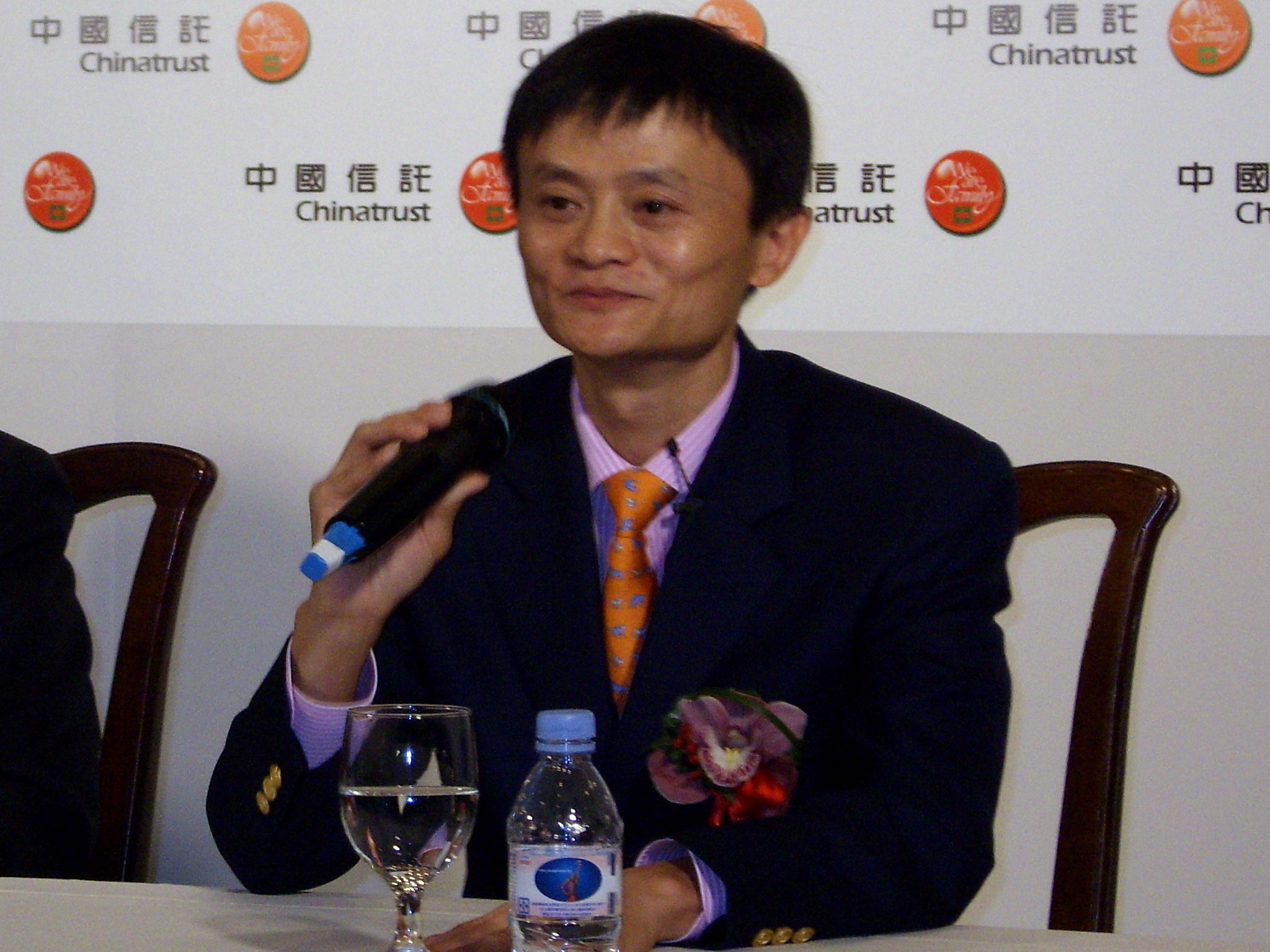Ma, Yun, 1964-
Enlarge text Shrink text- Alibaba, 2009:ECIP t.p. (Jack Ma)
- Google Web site, viewed on 08/26/2008:(Jack Ma; Chinese name: Ma Yun; b. November 1964, founder of Alibaba.com [like eBay in U.S.])
- Qian tu wu liang : Ma Yun, 2011:t.p. (马云 = Ma Yun)
Jack Ma Yun (Chinese: 马云; pinyin: Mǎ Yún; born 10 September 1964) is a Chinese businessman and philanthropist. He is the (co-)founder of Alibaba Group, Yunfeng Capital, and Jack Ma Foundation. As of November 2024, Ma's net worth was estimated at US$25.2 billion. After taking the gaokao three times, Ma earned a bachelor’s degree in English from Hangzhou Normal University in 1988 and was assigned as an English and international trade lecturer at Hangzhou Dianzi University. Interested in internet entrepreneurship since the 1980s, he founded his first business, Hangzhou Hope Translation Agency, in 1994. The following year, he created the agency’s website and then resigned from the university to establish Hangzhou Hope Computer Services Co., Ltd., one of China’s earliest internet startups, which operated an online yellow pages service for Chinese companies. In 1996, Ma’s company was acquired by China Telecommunications Corporation. Following an unsatisfactory collaboration, he left the company the next year and went on to develop websites for China’s Ministry of Foreign Trade and Economic Cooperation. In 1999, he co-founded Alibaba Group, initially as a B2B e-commerce marketplace and later expanded into a multinational technology conglomerate. Ma has been regarded as a leading figure and global ambassador of Chinese business. His influence declined after Chinese regulators halted the anticipated IPO of his digital payments company, Ant Group, in 2020, following his criticism of China’s financial regulators for prioritizing risk control over innovation.
Read more on Wikipedia >
 Personality
Personality


 (cropped).jpg)

